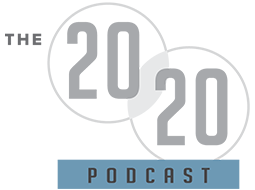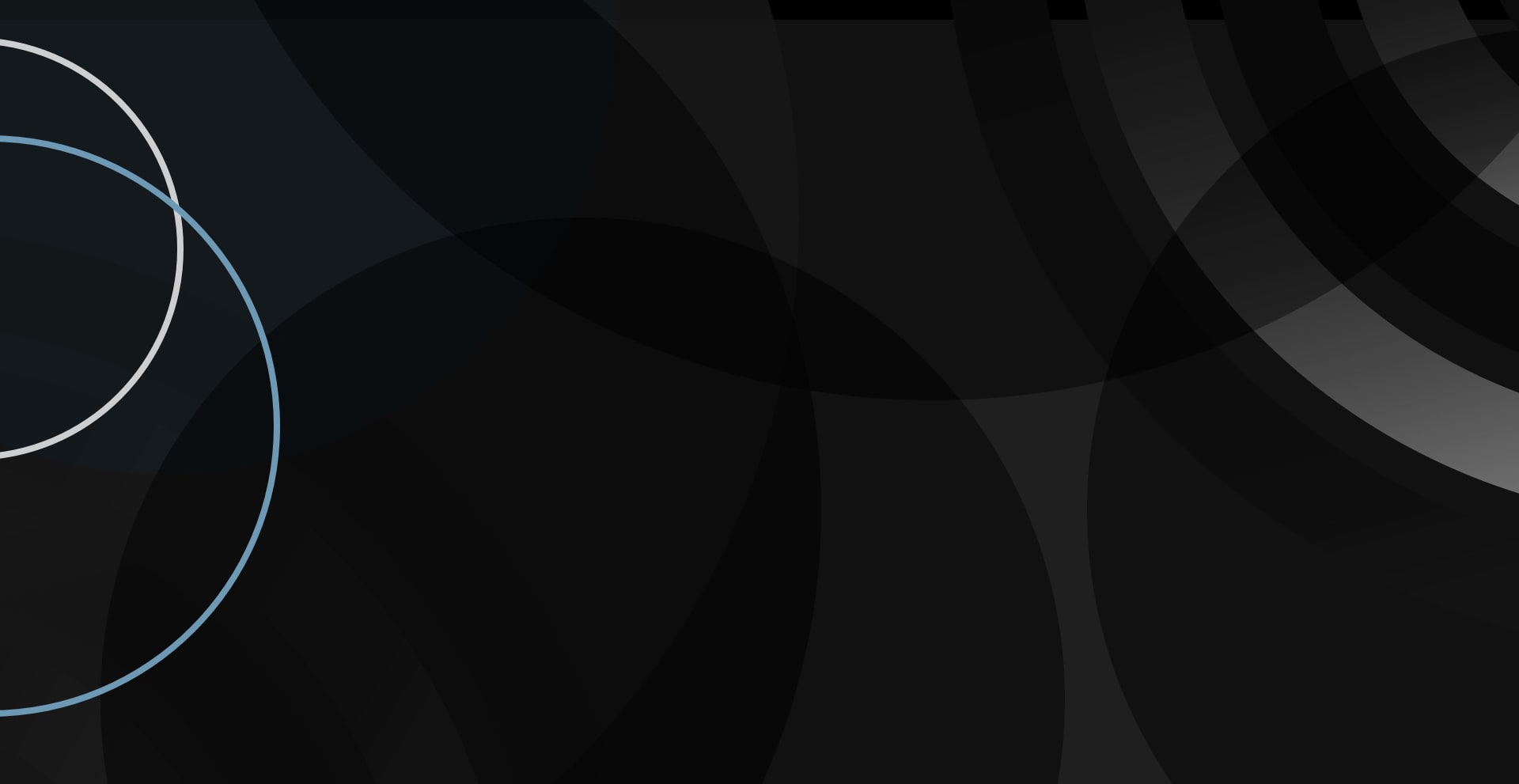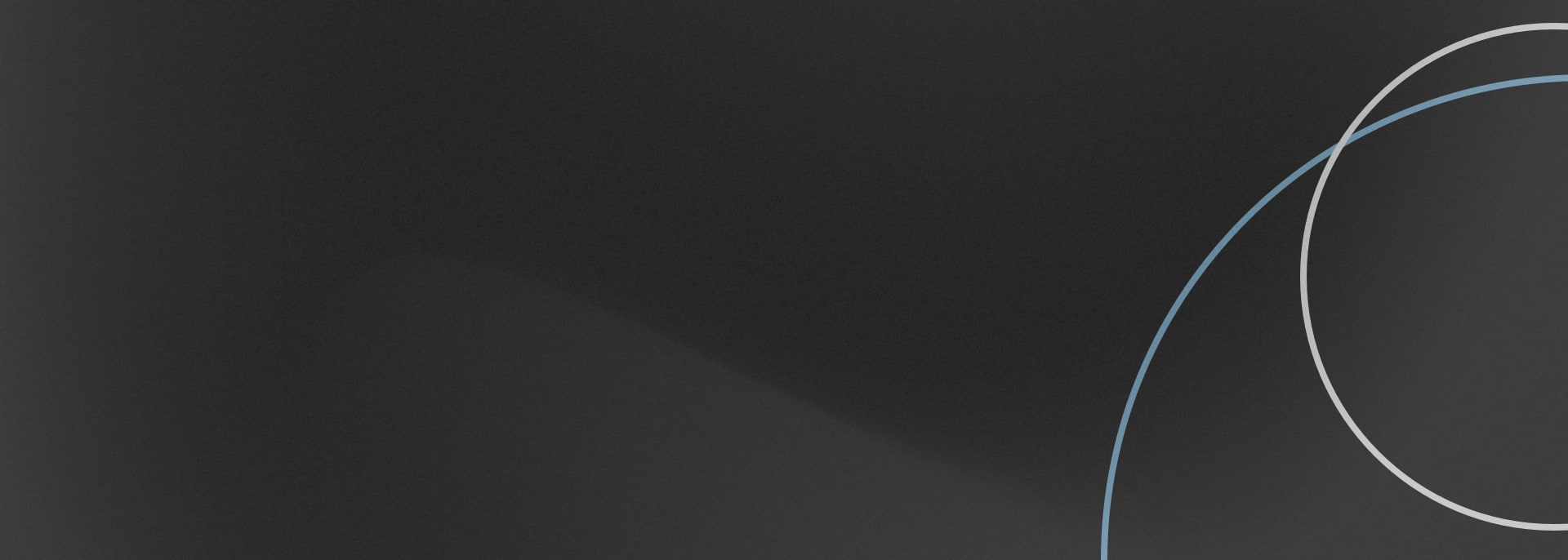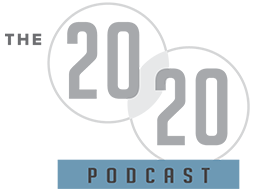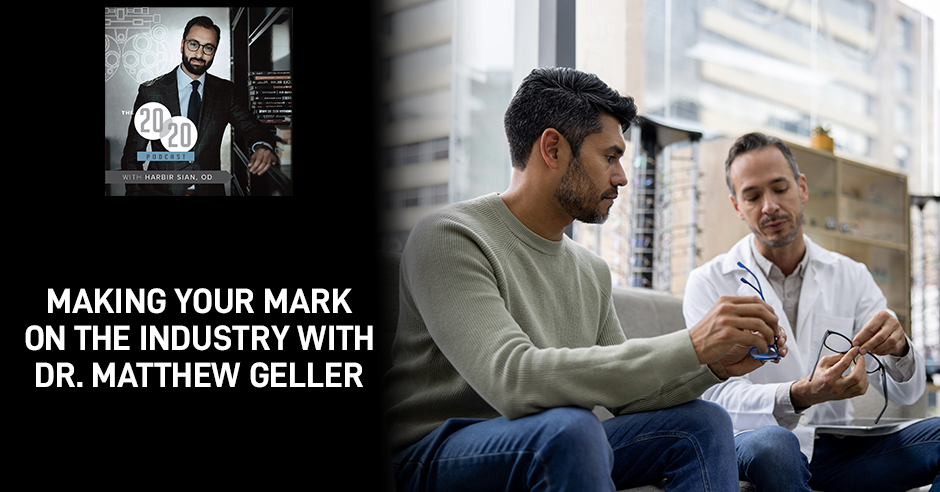
What does it take to make your mark in your industry? That’s what we’re going to be discussing with our guest in this epsiode. Dr. Matthew Geller is the co-founder and CEO of CovalentCollective, which is the parent company for the very popular education platform EyesOnEyecare. In this episode, Matt takes us through his incredible journey from starting OptometryStudents.com to NewGradOptometry.com, and now to EyesOnEyecare.com. A true entrepreneur at heart, Dr. Geller shares how he is always looking for opportunities and how others within the eye care community can do the same. Tune in for more!
—
Watch the episode here
Listen to the podcast here
Making Your Mark On The Industry With Dr. Matthew Geller
Thank you so much for taking the time to join me to learn and grow. As always, quick favor to ask right off the top. If you get any value from this episode or received value from previous episodes, please do share it with a friend. Send a link. Take a screenshot. Throw it up on Instagram. Tag me and my amazing guest, Dr. Matt Geller, to let people know what we talked about and what you found valuable. If you don’t know Matt, you might not because Matt like has gone into hiding. You’ve been low-key, but it’s cool.
Matt is the Founder and CEO of Eyes On Eyecare, which is one of the biggest can immediate outlets in the eye care industry, previously known as NewGradOptometry and CovalentCareers. Matt is the true definition of an entrepreneur in the eye care space. I’m excited. I finally met him after all these years. I’ve wanted to have you on, get you on, and tap into that brain of yours. Thanks for coming on the show. I appreciate it.
Thank you so much for having me and props to all that you’re doing and working hard towards. I see it. You are doing a great job.
Thanks. I appreciate that. Welcome. I first met you in person at Vision Expo West many years ago. It’s been nice to be in touch with NewGradOptometry or CovalentCareers. I was part of some videos and content that was created. It was fun to be involved. It’s been cool to watch the company grow and have the impact that it has. It’s crazy the level that you guys are at. I want to rewind the clock to the beginning of this. Let’s go back to the beginning of your optometry career. Let’s try to tap into the early days of that entrepreneurial spirit and that mind that you had. You went to optometry school and graduated. What were you thinking at that time?
In optometry school, that’s when it all started. I started in 2009, but OptometryStudents.com was my first endeavor.
You started OptometryStudents.com. I didn’t know that.
It is the first project. I can’t sit still. I want to get my hands deep into things. I had goals in life and I knew that doing what everyone else did would get me what everyone else got, which was great, but it didn’t meet my goal. I had to do more to achieve those. AOA ended up acquiring it about 1 or 2 years into the project which was serendipitous luck, hard work or whatever it is that happened. When I graduated, I started NewGradOptometry.com because they own that site. I was like, “Clearly, I’m doing something right here,” then going after the demographic thing.
For readers, it may be hard to believe, but back in 2009, which was OptometryStudents.com, and in 2013 when NewGradOptometry.com, started, there was no legit voice. There was no Instagram. Instagram started in 2010. Those platforms weren’t what they were nowadays and not even close. It was like people taking photos of cool things. They build those niches pretty well. It was a big-time first-mover advantage. We scaled it into a very large digital publication.
We’ve got 40 employees now, full-time all like US-based stuff engineers, marketers, content creators, sales individuals, like the best team in the world. That’s where we’re at, but there hasn’t been a big digital publication to come along in big optometry since Pensievision or BMC. It’s been a fifteen-year gap where there was a void of being a larger player and VR, that player now, but it’s been an incredible journey.
I didn’t realize OptometryStudents.com was yours as well. That’s very cool. You clearly had that spark from a very early stage. What I always want to try to extract from an entrepreneur’s mind is when you have an idea, what’s the gap? I always feel like there’s a gap. Lots of people have ideas, and how do you feel between having an idea, starting that, and implementing it? What do you think’s missing in some people’s minds that perhaps you had that you were like, “I’m going to go do this?”
People get distracted. The gap they see is too big. They’re here, and they want to get here. They try to take way too far of a leap they try to get there and solve it. They’re missing the fact that all you got to do is go from here to here. There’s a good book, The Lion Tracker’s Guide To Life. It describes this perfectly. You are tracking a lion in the wild. You’re a guy on foot, and you’re trying to find a lion. You’re trying to find that lion because you want to see him yourself or maybe it’s your job, and you want to ultimately alert someone back at the resort like the Jeep would come by and the people can see the lion. That’s what those folks do.
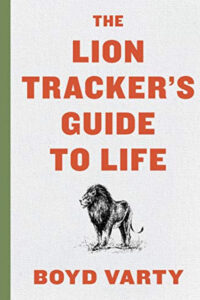
If you’re tracking a lion, the only thing that you need to worry about is the next track or piece. You’re looking for a paw print, a tuft of hair on a tree, droppings, or a dead animal cart. You’re worried about the next track. In the entrepreneurial world, it’s all about the big headlines and companies. You get psyched out of trying to get there that you miss what’s right in front of you. That’s the biggest key.
You have to have your goals and know where you want to end up and what you want that to feel like and be like, but it doesn’t necessarily need to be exact. You don’t need to know the exact product and service. You can start that way with goals, but worry about what’s next. Worry about what’s right in front of you. That’s how you close that gap. It’s also part of the entrepreneurs’ dilemma.
That’s a good point, taking those little steps toward that bigger goal. I’m going to try and think about stuff that I do, for example, a show or other stuff. It always starts with sending a text message, making a phone call, sending an email, or something small to get the ball rolling. The next thing you know, somebody responds with, “I can help you with that.” You take that call and now, you got another idea. Let’s act on that.
I started the podcast recording in my exam room. I bought a couple of cheap microphones, lights, and stuff. That’s how it started. It’s slowly gotten better and better. You’ve taken that to this level where you’ve created this company. You have 40 employees. That’s incredible. Tell me about the early days of CovalentCareers or NewGradOptometry. What did that look like? What were you doing? What was behind the scenes? What did you do? You started a website and then hoped people would come to it. What happened there?
The only thing that mattered back then was the mantra of content is king. That has gone by the wayside with the advent of social. I still think content is king. Back when it was about SEO, writing, and blogging, mostly content is king is all that mattered. I would slave away at making one piece of content that would decimate everyone who was trying to do a similar thing. I’m relentlessly working at that one piece then when we put it out, that’s exactly what it did. It was good. It was not about volume. It was about quality.
I have this dude that I like. His handle is @EatenByFlowers. He’s a street photographer. He has the craziest work ethic when it comes to street photography. He’ll sit in a spot all day long waiting for these perfect compositions. Literally, it’s almost psychotic in a way. It’s insane, but when he captures it, it is the most incredible thing you can possibly capture. I enjoy that. I don’t know if it’s some masochistic attitude, but I want to absolutely crush that one thing, whether it’s a guide for oral medications and dry eye or whatever the thing is. It’s got to be the top quality.
In a lot of what we’re publishing, there was some of that in optometric publishing, but there wasn’t enough of it. That was our motto, insane quality content and it still is. If you go on Eyes On Eyecare, you’ll see every featured image or article is hand illustrated by someone on a design team and all this little attention to detail.
I wanted you to finish that thought because there’s much good stuff in there with the photographer and having that mindset to the equivalent of sitting on the sidewalk, waiting for a moment, all day long. You’re doing that in your content creation. That’s crazy. I spoke with Jen Lyerly. She got her blog EyedolatryBlog.com. She gets a ton of hits and views. she doesn’t put a lot of content, but it’s like good quality content.
You talked about SEO. That’s ultimately what it is. All these people reading these blogs from many years ago because she had all the great content. You were doing that diligently. What was it that you were adding in there? let’s say somebody’s trying to write a blog and wants to improve their SEO, were a few of those components that you knew that you had to make sure you had in every one of those pieces?
SEO is very interesting because it’s a very easy game to play. There are many good tools out there like Moz and Ahrefs, all those sites where you look up keywords and do that. SEO now has changed much because there’s so much competition. Now you have something like ChatGPT 3.5 or 4 coming out where it’s easier than ever to create content. A lot of SEO was first mover advantage, domain ranking, and all of those things.
If you’re not in the game now, you better have deep pockets and you better be able to have like insane backlinks. You can get there. There is no doubt about it, but it is a harder game to play. It is an important game to play. For someone starting out new, it’s all about longtail keywords. You’ve got to find the keywords that maybe there are only 100 searches a month, but you’re going to rank number 1 for those 100 searches, then you find another longtail keyword that’s 50 searches a month, and you’re going to rank number 1.
If you do that enough, you’re going to have a good amount of traffic. We’re all in the healthcare space, you love competing with Medscape, WebMD, Mayo Clinic, and those types of things. Now you’re going to have your ChatGPTs and stuff like that. That’s a whole new level of what’s going to happen. SEO is hard of that quality game because Google’s very good at understanding quality. With our quality approach with what we do with Eyes on Eyecare, that plays into it, for sure.
That quality mentality going back to the entrepreneurial thing is something that, for example, you were at the house. I’m redoing the garage a little bit. I was putting baseboard again, painting, filling holes, making it super nice, thoroughly cleaning the floors, everything and I kept hearing, “It’s a garage. Why do you care so much?” It plays into my mentality of like, “I don’t care what it is. This is the level I want it at.” If treat your life like that, which in some ways, it’s crazy and you’ll totally burn out doing it, but if you look at everything like that, and you apply it in a business mentality, you will have success probably.
There’s clearly that consistent theme there in your life, whether it’s building a gym in the garage or doing your work. You remind me of a story from Steve Jobs. When he was a kid, he learned something from his dad. I think that’s how the story goes. They were painting the fence and the back of the house, and the fence faced like the woods. Nobody’s going to see it. His dad wanted to paint the outside of the fence as well. Steve was like, “Why am I painting that? Nobody’s going to sit,” and he’s like, “I know what it looks like.” That mentality sounds like what you’re talking about.
This story further continues. I brought that story up because someone was asking me, “Why do you care so much about this thing?” It’s the Steve Jobs thing. I’ve never heard of the fence thing, but they design the inside of Apple computers absolutely beautifully and flawlessly. There are stories of Italian Renaissance painters and things like that paint things inside that no one will ever see. That says something about life in general. This idea is to beautify all things in your life, make them beautiful, celebrate, and love them. That, to me, is important. I don’t care if anyone sees it. That’s a problem when you own a house for the first time.
Beautify all things in your life. Celebrate them and love them.
There are a lot of spaces in your house that you’re going to spend time beautifying. As much as we’ve talked and connected over the last few years and met in person, that’s the stuff I haven’t tapped into. It is like, “Where was your mind at in those early days? What were you doing?” If you are grinding, trying to create high-quality content with high-quality keywords to have super high-quality SEO to get NewGradOptometry or CovalentCareers more traffic, then what happened? Was it you doing it? Did you have a partner? When did it start to grow into more people?
NewGradOptometry was myself and I did have a great team of others helping out. Everyone was part-time. It was smaller and didn’t do that much revenue compared to where we are now. CovalentCareers was a talent acquisition platform that we wanted to do across multiple healthcare fields. There were companies getting funded with great valuations to tackle the talent acquisition problem in healthcare.
It’s a big problem. We thought we had the answer to solve it. It turns out that we didn’t have the answer to solve it, not because it was a bad idea, but because the cofounders, which by the way, were myself and my brother, who’s our engineer. He develops all the tech. That’s the eyecare ecosystem and stuff you guys don’t see. Brett Kestenbaum, who’s one of my best friends from high school, is our CFO and COO.
We had the perfect dynamic duo. Until nowadays, we’re so good together. When we started going into careers, we were tapping that problem, we didn’t want to pursue that talent acquisition across all healthcare problems. Do you know why? It was boring to us. There was a lot of back-office stuff. It was like boring pushing papers. We were a creative bunch. We pivoted from that, but it was the CovalentCareers thing where everything got super serious. It leveled up like a whole other level because our aspirations for what we wanted to achieve got much greater. Now you’re looking at the pie in three ways. We got super aggressive.
At that point, we were making basically no money. Brett and I were done with patient care. He was a PT or Physical Therapist. We said, “We don’t care what the stakes are. There’s no more patient care. There’s only this project forevermore.” When your backs are against the wall, you burn all bridges to safety, pretty beautiful things happen. It’s only under those circumstances things flourish. Now granted, we were doing okay, but we took a hit for a little bit.
When your back is against the wall and you burn all bridges to safety, beautiful things happen.
You felt that, but it was like, “Err,” and then lift off because of that of dedication, devotion, and stuff like that. Those were some of the elements. It’s not necessarily the formula to success, I wouldn’t be super cautious of that, but that’s what I remember. The stakes got a lot higher. We went all in and pushed ourselves. We almost went broke only once in our history. It wasn’t during COVID or these economic times. It was when we were going wide across multiple healthcare fields.
The big dilemma I see a lot of entrepreneurs make is they want this sexy, big business, millions of dollars. They don’t realize that if they were to earn an extra $250,000 a year, all their problems will be solved. They’d be totally happy, but they aim for a $50 million idea versus a $250,000 idea. They burn out when they can’t get there.
For us, going wide across healthcare, which is a $500 million market perhaps, or something. I don’t even care and remember what that was. Whatever it was, that was making spinner wheels, and we couldn’t get where we want it to be. We looked out the back and focused on what we were doing eyecare in 1 inch wide and 1 mile deep versus 1 mile wide and 1 inch deep. That was one of the big lessons for me. Everyone said it. I didn’t believe them. I was like, “You’re wrong,” but they were right.
You hear that consistently across most industries. People will tell you, “Go deep versus go wide.” It’s sexy to go wide and be like, “I want to hit the entire market. I want to hit all,” but if you’re trying to be something to everybody, you’re nobody to anybody. Go back to talent acquisition for a second, tell me what that means exactly.
It means helping doctors find jobs or helping practices find doctors. There’s a whole wide range of that like in nursing, for example. The majority of that happens through travel like nursing. These nurses do thirteen-week placements where Washington is like, “We don’t have enough coverage in our hospitals. We’ll work with a company like Aya Healthcare,” which is a staffing company. They’ll hire a bunch of nurses. They work for Aya, and then Aya contracts them out for thirteen-week travel placements. They make a pretty good gross margin on it. Net profits are okay, but there’s a huge multibillion-dollar market there.
We weren’t trying to do that in optometry. It’ll never work. It’s weird what’s going on now, but still, that thing doesn’t work. We are trying to do that and allied health and nursing and that type of stuff. It’s not that interesting of a field for us. We are still the biggest talent acquisition company in eye care. Eyes On Eyecare helps more optometrists fund jobs than any other company in eye care. It’s crazy. We’ve got 2 recruiters on a team of 1 salesperson in that individual division. Every year, it continues to grow and do amazing. The reason is that it’s part of a larger ecosystem. We have larger Eyes On Eyecare, ophthalmology, optometry, talent acquisition courses, CE, events, and the whole thing.
More things are feeding into it.
Going back to what we said before, if you try to develop the whole ecosystem from scratch without focusing on the next line track in the sand, you will have a much harder time. The talent acquisition thing is cool. That’s another thing for eye care professionals reading, entrepreneurial folks, you don’t need to stay in eye care. There’s a lot of stuff in healthcare that’s super similar. You could flourish there.

For talent acquisition, you’re saying there are other opportunities outside of healthcare.
Even outside of talent acquisition, if you know healthcare, there’s a large healthcare entrepreneurial market period.
Tell me more about that.
Where do you begin? There are a lot of places. You could subscribe to Rock Health, which is like a newsletter that talks about companies getting funded for their series A, start there and look at what’s going on. In general, patient care and managed care, the way that the system works is very similar. All the people you and I work with within the industry constantly move laterally. We work with J&J quite a bit. They move within J&J all the divisions. I have a friend who is in dry eye and now he’s in MS doing MS drugs. If those people move with no problem, why can’t we as entrepreneurs move with no problem? It depends. I’m not saying like, “Go start another show.” Can imagine you may have an oncologist buddy, there’s like waves and all sorts of stuff.
I don’t think it would be appropriate for me to go starting talking about oncology, podiatry, or something. I’ve never had a whole lot of clinical type of conversations on the show anyway. I more like looking at ways to branch out into different industries. I have with this show like, “Let me bring on somebody from who’s an athlete or other industry to talk about some parallels between eye care and that,” but also within eye care. Rather than talking about just eye care, let’s talk about the psychology and other things that we offshoot. I’m trying to explore that. It makes sense that we should be able to explore that in other ways in the healthcare industry as well. That’s cool.
To me, you strike me as the right person. You’ve done you’ve created content along these lines. If I wanted to get a job that’s not patient care but still within eye care, I feel like you would be the right person to talk to you. It seems like these days, there’s a lot more people going into industry and these types of things. What advice do you have to somebody who’s a new grad who’s like, “I’m an optometrist and it makes sense. I went to school. I got trained all these years, but I’m not 100% Sure if patient care is my thing?” What do you suggest to that person?
It’s one of the only questions I still get. When you talked about me, I’ve moved into the shadows, which by the way, is very intentional. In order for the company to scale, I need to move into the shadows. In appearances like this, which I don’t do anymore, to the point I didn’t get asked to do them, which is like totally cool. I don’t mind. Even within my own team, it’s important for me to not have hands-on, let alone eyes on everything.
It’s important for scalability. Now still, I’m present. I’m a servant to everyone in the company. No matter what, I’m there for them. In order to allow for scale, it’s important. For at least what our goals are, my goals are and what we’re trying to do, it’s important. Now there’s a whole influencer generation and that is not the answer. Emily and I had dinner. This was like the same conversation of, “How do you scale? How do you do these sorts of things?” There are a lot of good examples of how to get out of the way and how to allow for that scale.
Emily and you had this conversation with a while back about non-practice and non-patient care opportunities.
There’s a market timing aspect of things. You’re seeing more layoffs and more budget cuts. If you’re not seeing that, I’m here to tell you that it’s happening. If you want to learn why that’s happening, understand what interest rates are and how the Federal Reserve controls interest rates, and what that means for money supply and inflation. The best thing to watch is Ray Dalio’s video on YouTube, How The Economic Machine Works. That’ll explain it.
That’s why we’re seeing a reduction and force that companies globally and not just in eye care. Now’s not the right time, but when the time is right, getting into the industry in eye care is great because the main reason there’s a lot of opportunity is because of what CMS did and what happened with the Sunshine Act right with open payments reporting.
Companies need to report what they pay to doctors. You can’t buy a doctor a vacation anymore or a golf bag. It’s illegal. You can buy them dinners. The only way that industry can truly impact the doctor is through professional education. That’s the way it should be. It’s, “Let’s educate you. Let’s do our best to make you better, which improves patient outcomes.” That was the Sunshine Act, open payments, and that whole thing. You can read about it.
The reason that ODs would be great and industry is because they know education better than anyone. There are a lot of different roles there where you can be a top educator, whether it’s forming education, or working with KOLs. You got to understand the way people work. You got to know who’s who. That is the game. It’s not as much of a game of like, “I’m going to go to X, Y, Z company and do finance for them. I’m going to do their marketing.”
There’s probably a better marketer than you. There’s probably a better finance person to do it. Your slot is likely in the professional education division. It’s educating doctors, and it’s making relationships with doctors. That is the way. If you want to know how to get there, you got to get involved in that education space. Are you writing? Are you doing guest appearances? Are you knowing who’s who? Are you going to conferences and networking? Your resume then looks good.
I look around at doctors who have gone into those spaces and like, “I don’t know how to talk to them.” If you want to go the route, like I’ve gone, I created a different business rather than went to an existing company and that’s a totally different ball of wax that has to do with finding a market need. Where is a deep true need? Can you legitimately fill that need?
The way to find out if there’s a need is the same thing back to The Lion Tracker’s Guide To Life by Boyd Varty which is, “Just worry about the next track in front of you.” We’re building a new product. I can’t give out too much information because I don’t even know what the thing is going to sound like and they didn’t. I’m tempted to get to what this thing is going to look like and how it’s going to work. I forgot I need to go and take certain friends to dinner, go talk to them and ask them questions, “Tell me more. What do you mean by that? What do you think that this feature would be cool?”
There are all books on user studies and user testing, and how to understand what someone wants. You don’t want to get your lead and questions in the way and screw it up. It’s finding that need through the right types of questions without giving, “This is what I want to develop. Will you like it?” “I’d like it,” then they don’t buy it. There’s a spidey sense you got to have around that thing.
That develops from like you said, having those conversations being around the people, going to conferences, and seeing what’s happening. You can find sort of spots, trends, and then gaps in the market in different places, and then have the willingness to move towards something and take some action, as you said, take somebody out to dinner and have a conversation.
We’re cool with Just Valentin. I was listening to his episode before I jumped on. I’d met him for the first time at Expo. We kept bumping into each other. He’s a cool guy. He found a beautiful need. He focused on the consumer side, first and foremost. I don’t want to tell his story. I’m not exactly sure but that’s where I first saw him. He was doing consumer-focused videos. I’m like, “What a good angle.” None of us were focused there, but yet that’s what we do as OD is nonstop consumer stuff. He obviously has the knack for it, a skillset, and everything but he saw an opportunity there. I don’t know how he followed the track. it is about that one step in front of the other not making a giant leap.
Joey’s great. Shout out, Joe. I love everything he does. He’s such a genuine. He reminds me a little bit of you in that same principle of making sure painstakingly, and sometimes you’re almost to your own detriment, like making sure everything’s done. I talked to him about it. He’s like, “I wish it didn’t need to, but it looks and sounds good.”
Nobody can compare in quality to what he does unless you’re going to go hire somebody and spend tens of thousands of dollars. He’s probably spent that on his equipment, but he spent hours. He’s doing amazing. I wish him all the success and everything he’s doing. I got a chance to sit down with him in New York and record an episode. I’m going to hopefully publish that conversation. We’ll see or I’ll be like, “I’ve been gibberish for an hour. I can’t use this.”
It will always evolve. It doesn’t stop. That is the driving force of life. There will be something new like talking about interest rates, like the monetary cycle is like this for a reason there will be your time to strike. Whoever’s thinking of the entrepreneurial next entrepreneur idea out there, hit me up.
It will always evolve. It doesn’t stop that as the driving force of life.
Ultimately, the conversation was going to lead to, “Give me a call.” Let’s get back on to the NewGrad, CovalentCareers, and Eyes On Eyecare journey here. When did you know you had something good? Can you remember that one moment where you’re like, “We got something. I can turn this into something big?” You believed it from day one. What did you see that was the proof?
There was never that time. There was always an insane level of belief. Nothing ever shocked me. Even when we get wins, I don’t get that excited. It’s short-lived. I definitely am harder. I’m like all about the losses like, “How do we make that not happen again?” I could recall a few times like the first sponsorship we ever signed with Vision Source and SLR for NewGradOptometry. I remember recording myself on the call to share with Brett or Josh after the fact or whatever call it was to see my reaction.
I didn’t share it with anyone. There were these little moments. It was the first sponsorship. It was the first time we ever sold a job listing on CovalentCareers.com. All the analytics are hooked up. We’re waiting there you see the person on the card. They’re in the card for 30 seconds. Credit card payments successful, $199. It was always little things along the way. I have blinders on in general. I try to not get distracted. I don’t feel like I’ve made it.
It was always just little things along the way.
My journey is very different from yours, even though we’re in the same industry, but it’s funny, you set certain targets in your mind, “When I hit this, I’m going to have made it. I’m going to feel proud of myself.’” You get to tell me like, “That was nice, but it doesn’t feel anything like what I thought it was going to feel like. I have the next goal that I get to get to right.” It’s anticlimactic a lot of the time. When you hit a goal, you’re like, “I got bigger goals.” Along the journey, when you set this x target on the way there, you already set another target well beyond that. When you hit X, you’re like, “That’s whatever. I got to get to the end.” Before you get to the next one, you’ve already set another one. It becomes a little anticlimactic when he hit him.
There is something there. We can do an hour on that topic alone because as we started to be successful, I realized that it was like Alice in Wonderland. She’s always running away. It’s a constant treadmill like you never get there. That’s problematic because you’re never truly enjoying life. Success is always in the future. You’re always working towards something. From a spiritual perspective that’s like, “I was hitting these goals. I got the car, the watch, the thing, and the material stuff. I was never happy with it.”
It never did anything for longer than a couple of moments. At least for me, it didn’t. It changed what I feel about, “What’s next? What’s the next level?” That’s counter-entrepreneurial, but I don’t want to continue forever growing bigger and bigger. It’s not appealing to me. You saw I’m up here now I’m trying to slow down and do the opposite. There’s deer around the property. I want to plant a vegetable garden. I want to return to more presence. Maybe it’s easy for me to say because I have accomplished quite a bit it feels, “Okay,” by no means am I hanging it up like we’re still going.
You need to be careful about the constant, never-ending, and never-happy because I don’t want anyone to be disappointed out there. The way you feel now was probably pretty close similar to how you’ll feel even if you accomplish all those things. Your baseline happiness is in here, no matter what. All the things don’t matter. It’s just how your perception is.
Granted, I have like a very narrow slice. My slice of how I grew up, the way things were, what was offered to me, what I had access to, that’s my story I don’t know if growing up on that journey feels totally different. It’s a generalization. I don’t want to totally generalize, but it is a very common thing out there to know that it is very commonly explained thing out there that accumulating more material things won’t necessarily make you happier. It makes you upset.

You often do hear that from people who are successful or wealthy. There is a certain amount of wealth and that helps eradicate a lot of the things that might make you feel upset. You’re already a debt. You can live comfortably knowing you can buy the necessities in life and you’re going to be safe and secure right like Maslow’s Hierarchy of Needs. You can meet all of those. Beyond that like then having a ton more money from what I understand doesn’t necessarily bring you a whole lot more happiness.
I love one quote from Jim Carrey, which is, “I wish everybody could be rich and famous because then they would know that it doesn’t bring you any happiness.” That’s such a cool quote. I like Jim Carrey a lot, one, because he’s Canadian, but also because he’s a funny and successful guy and spiritual. On top of that, you think of him as a comedian, but he’s very spiritual. I love to hear him talk.
If you do it for the joy of just doing it, and that’s your fruit, then you’re on the right track, because you will create great things. You’ll do it for probably pretty good reasons. That’s the most fulfilling part. To me, the rest is like icing on the cake, but it’s been the whole journey for sure. That’s the most rewarding part. Get a reality check throughout the process because you don’t want to miss what’s most important. That’s being present. That’s realizing that like this simplest things are where the happiness is.
I’m in the middle of taking three months off of clinical care to be home with the family. We had our third baby. I’ve been shy to say that three-month number out loud to a lot of people. This show with Jen and you is the first time I’ve I think said it out on the blog. When I do say it, everybody’s eyes go like, “What? Three months?” It is great. There was a lot of anxiety in the beginning because I was like, “I’m supposed to be at work. I’m supposed to be seeing patients.”
Taking the time when I’m with my kids to be like, “This is the important place that I need to be,” and flipping that switch. All of a sudden, you can flip the switch and be happy at the moment if you decide, “This is the thing that I need to be doing right now. This is the thing that’s most important to me.” When I was talking to Joey in New York, it was like I see something with parents where they have something different in them in the way that they approach life.
I was like, “When you have a child, there are many situations where when the child needs something, nothing else matters,” and I’m sure you could attest to this. That’s it. There’s like a bubble, blinders, or however you want to phrase it. Everything goes to black other than that. The kids are sick. I get a run on grab medicine or they’re hurt or something.
When you get that perspective, it helps to change how you look at all these other material things and other things like that sometimes. If you let it, if you’re willing to allow yourself to see things differently, that’s something that I’ve seen. I continue to try to look in this way because the kids are over there. I try to let that I soak in as much as I can so I can forget about the work-related anxiety and whatever, and enjoy where I am. Now I’m like, “This is the best. I love this. It’s awesome.”
When I was looking for insight, it was not about working more. It was about sabbatical time whether a sabbatical is probably defined as longer than a couple of days. You’re going to come out of it rejuvenated and probably do your best work.
I might still be lacking sleep though. Three months off doesn’t mean a vacation. Not sleeping all that well, but it’s nice to be here and be present.
My daughter turned one. That was a bit of a waking up of focused on way different things and priorities, but until you have your kid, keep doing you.
The funny thing is some people are able to tap into that before they have kids or without kids like, “How I put the blinders on and focus on where I am and what I’m doing right now?” I was never very good at that. My mind was always in a lot of different places. I’ve trained myself to like when I’m with my kids to like be with my kids, try to take that energy and apply it to other things. Now, I’m getting better at it. It takes time for me. Before I go on to the last couple of questions I want to ask you, I always stop here to ask how people can get in touch. The problem is that you’ve become a recluse and like hidden yourself out in the woods. I don’t know if you want people to get in touch with you. If somebody wanted to learn about you, what would they do? Where would they go?
I don’t have too much out there. I guess you can probably google and then go down my name and optometry. See what comes up. I put out some content and definitely did a few little guestings here and there. I don’t maintain any social media presence or much like that. If you want to get in touch, [email protected]. Email me. That’s cool. Happy to say hi.
What’s your Instagram handle?
Email me before you hit me up at @DrMattGeller.
Let’s jump into the last two questions I ask every guest and get a bit more of a deeper personal insight. The first of those two is if we could hop in a time machine, and punch in a date and time of a point in your life where Matt Geller was struggling with something personally, professionally, or whatever, you can share that moment if you’d like to. More importantly, once you get another time machine what information or advice are you going to share with younger Matt?
You’d rewind only two years ago. It was at a crossroads of like, “Where’s this going? What is the point?” It is very much an existential moment before my daughter was born, the crossroads of that, the company, an insane amount of work hitting bigger levels and questioning, “What? Is this just going to keep going like this? What’s the point?” It is deep stuff, the spiritual level stuff. The advice I’d give that person is that as cheesy as this may sound, “It’s all love. That’s what the universe is made of. If you take a risk, you trust in it, and you come to grips with what your reality is, it will catch you. You can fall and it will catch you. It’ll be a soft, pillowy bed.”
Love is what the universe is made of. And if you take a risk, and you trust in it, and you come to grips with what your reality is, it will catch you.
It was like that conversation even deeper. I was 35. it felt like the death of this old life leaving, no kids, and more time than ever, it’s the transition point. Those maybe who are younger, who are about to hit their mid-30s may find that they’re going through something similar. Plus, like moving, knowing that I didn’t want to stay in San Diego, it all kinds of hits. It was like having faith that what we’re all experiencing is a beautiful thing. It’s made of love at its essence. To be honest, that’s what got me through it.
That’s great the cheesy stuff is the good stuff these days. I feel like I’m getting Matthew McConaughey vibes here. Thank you for that answer. I appreciate it. The last question is, and you touched on this already a little bit throughout the conversation. You’re a young man and everything you’ve accomplished to this point already, how much of it would you say is due to luck, and how much is due to hard work?
It’s hard because I’ve honestly flip-flopped a bit. When I was younger, I believed it was 100% hard work. I still have a strong discipline about me and a strong work ethic. As I look back, there’s something there beyond just the work. I don’t know if it’s necessarily a work thing or a mind state thing like having a certain mind state was on my journal entry. I sit at a little table before I start. I had a moment. I was working out at the gym and the garage. The light was hitting just right. I realized that what I was experiencing was something I visualized back when I was studying abroad in Nottingham, England.
I visualized something very similar, and how that potentially had manifested into what I was experiencing however many years later. The journal entry was about, “What am I thinking now? What am I visualizing? What am I manifesting? There may be a delay there. It’s coming.” I’m very torn between discipline, hard work, and the feeling of control, but I’ve also gotten a much more spiritual path as a person. I’m much more connected with that side. That’s like a whole week and I go down that side of things.
I wouldn’t be able to speak clearly. It’s a very complex topic, but I feel like there’s something there that’s beyond the hard work. Maybe it’s happenstance, luck, and things like that. To give you one answer, it does come down to strong discipline and work ethic if you’re going to play this game. If you do it right and by the book, and by the book, I mean this topic has been extensively written about. I read Think And Grow Rich by Napoleon Hill. You don’t need to listen to anything else. They’ve been written about you can tap in and that is the Bible. That is the guide. I would lean on that answer. Discipline, hard work, and the grind.
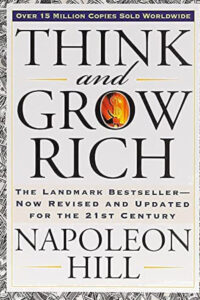
I appreciate that. I like that. Here’s what we’re going to do. The next time you’re out, you’re going to like chop wood or something, call me. We’re going to chop wood on the property. We’re going to have that conversation and we’re going to do it. We’ll talk about the universe, the other energies, and all that kind of stuff.
Shoot me an email. We’ll talk about that topic all day. We’ll put in our awesome spiritual teachers like Alan Watts, Ram Dass, Terence McKenna, Rupert Spira, and all that good stuff for what it’s worth. To those reading, maybe you’re more religious. Maybe you’re more spiritual or whatever you are. There’s something important there in general for general fulfillment and happiness in life. It brought me a lot of fulfillment and happiness. It showed me that beyond building the company and the work, there are also important things.
I appreciate that. It’s nice to hear that side of things because you’ve been diligent. You got the work ethic to start this company from the ground up. You’re entrepreneurial-minded, but you also have the balance of understanding that the universe has its own journey and path for you as well. Robin Sharma was saying something along the lines of like, “The universe probably essentially has your fate or your destiny planned for you. You can chart your path to ultimately end up in that place. Enjoy the journey more than the ending,” like you’ve said many times already.
One of our guiding philosophies at the company is honesty, open truth, and transparency. I know no other way. If you’re going to ask me that question, I’m giving you the real answer. You’re not going to be like, “There was like this hard time when we had this much money in the bank.” That’s it. That’s important to connect with people. It’s important from a business perspective to let your true self be known. It’s important for the health of the universe if you want to go to that end of the spectrum.
Be you. That’s another key. What you’re doing with the show, what Joe’s doing with the YouTube stuff, finding your niche, being you and shameless, and opening up to that true nature of who you are, is critical for success, especially as of late. The way that media is out there, the frequency, the volume, and customization, you’ve got to be that unique person. You are unique. Don’t front it with something else. That’s also not my area of expertise. I’m behind the curtain.
That’s probably the most important lesson that I’ve learned. I’m still working on but I feel much more comfortable in my own skin now as I’m slowly leaning into this being your own authentic self, and not trying to pretend to be somebody else. I’m happy to be transparent about this stuff. I’m going to have a series of conversations about what it’s like behind the camera, or behind the scenes and social media, that stuff that we create, and what real life is compared to what we see.
I want to be more out there. I want my face to be seen and be part of that conversation. I was at a meeting and there were a bunch of people there that I would normally years ago be like, “I want to sit next to that guy. I can make sure I talked to him.” I went and found an empty seat over wherever. I was like, “I’m good. I got to do me. You do you.” Eventually, something will happen. Those conversations happen anyways. It’s being that natural, authentic you, who you are, and not trying to put that facade on it. It is important.
You save yourself a bunch of wasted energy, trying to pretend to be something that you’re not or trying to overexert yourself. It’s important to do that. That’s coming from somebody who does put their face out there a lot. Still, it’s very important to be as close to your genuine self as you can. I know you’ve given so many words of wisdom. Are any more spiritual contextual things?
You leave that behind you. That’s the weird part, the synchronicity. I’m here talking about love. I love Dad, iced coffee, and love. The universe smiles back at you. Those are my words of wisdom. Keep a lookout for what we’re doing. If people ask where we’re at in our evolution, we’re about halfway done. We’ve got some incredibly cool stuff coming out. For all the softness I’m bringing to the conversation, we’re still ruthless monsters wanting to achieve our goals and build an amazing company where people love to work. The team is absolutely incredible. I love that stuff. To me, it’s a bit of a game in a good way. Keep an eye out. We’ve got some cool stuff. I’m always happy to keep in touch. Shoot me an email.
Thank you. I love what you’re doing. I love that tenacity. You got the balance. You need that understanding of the invisible stuff that’s going around but have that tenacity, grind, and hard work. You got that for sure. Thanks for sharing that. I appreciate it. Thank you to everybody who’s reading. Take a screenshot. Throw it up on Instagram or put a link on LinkedIn or whatever. Let people know that Matt and I had this conversation. Talk about this man and everything he’s doing. There’s that entrepreneurial mindset. I know that many people out there many of our colleagues have. I hope this sparks something in you to take that first step and do that Lion Trackers Guide to the real world. Start to get out there. Take care and I’ll see you in the next episode.
Important Links
- Eyes On Eyecare
- OptometryStudents.com
- NewGradOptometry.com
- The Lion Tracker’s Guide To Life
- @EatenByFlowers – Instagram
- EyedolatryBlog.com
- How The Economic Machine Works – YouTube
- [email protected]
- @DrMattGeller – Instagram
- Think And Grow Rich
About the guest
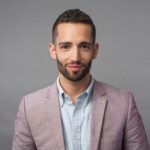 Dr. Matthew Geller: While attending SUNY College of Optometry from 2009 to 2013, Dr. Matt Geller founded OptometryStudents.com and NewGradOptometry.com. Upon entering clinical practice, Dr. Geller co-founded Eyes On Eyecare, which is now the #1 provider of clinical and career education for the next generation of optometrists and ophthalmologists through its all-in-one digital content platform. The organization is based out of San Diego, California, with a current team of 40 individuals dedicated to creating premium quality resources for ECPs.
Dr. Matthew Geller: While attending SUNY College of Optometry from 2009 to 2013, Dr. Matt Geller founded OptometryStudents.com and NewGradOptometry.com. Upon entering clinical practice, Dr. Geller co-founded Eyes On Eyecare, which is now the #1 provider of clinical and career education for the next generation of optometrists and ophthalmologists through its all-in-one digital content platform. The organization is based out of San Diego, California, with a current team of 40 individuals dedicated to creating premium quality resources for ECPs.
